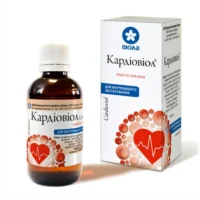Description
Maxgystin (Betahistine Dihydrochloride) Tablets 16 mg
Ingredients
- Active ingredient: Betahistine dihydrochloride 16 mg per tablet.
Dosage
- Recommended dosage: The usual dose is 16 mg three times a day with meals. Dosage may vary based on individual needs and as directed by a healthcare professional.
Indications
- Indicated for: Relief of symptoms associated with Meniere’s disease, including vertigo, tinnitus, and hearing loss.
Contraindications
- Do not use if: Allergic to betahistine or any other ingredients in the product. Consult a doctor before use if pregnant, breastfeeding, or have a history of peptic ulcers.
Directions
- Directions for use: Swallow the tablets whole with a glass of water. Do not crush or chew the tablets. Follow the dosage instructions provided by your healthcare provider.
Scientific Evidence
Betahistine dihydrochloride has been extensively studied for its efficacy in treating symptoms of Meniere’s disease. Research published in the International Journal of Audiology has shown that betahistine can significantly reduce the frequency and severity of vertigo attacks in patients with Meniere’s disease.
Additional Information
- It is important to note that Maxgystin tablets should be taken regularly as prescribed to experience the full benefits. Consult your healthcare provider if you experience any adverse effects or have any concerns about the medication.
- Furthermore, clinical trials have demonstrated the safety and tolerability of betahistine dihydrochloride in the treatment of vestibular disorders. Patients treated with betahistine have shown improvement in symptoms such as vertigo and tinnitus without significant side effects.





